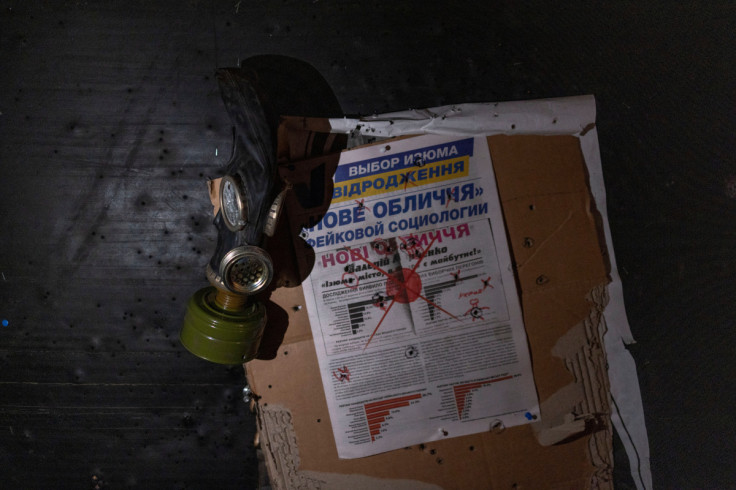80% Of Russian Prisoners Of War Are In 'State Of Anorexia, Skin And Bones'

KEY POINTS
- A former captive said the main problem prisoners of war face in Russian captivity is the lack of nutrition
- Russian forces have been previously accused of denying Ukrainian prisoners of war access to food
- Russian forces have also been accused of beating and torturing prisoners of war
A majority of Russian prisoners of war are currently suffering from hunger due to a lack of nutrition, according to a report.
Speaking to Media Center Ukraine - Odesa, former Russian prisoner of war Dmytro Kubryak said that captives are only given less than five minutes to finish their meal. Kubryak is a neurosurgeon and a referee of the Ukrainian Football Association who was released by the Kremlin.
"The main problem in Russian captivity is insufficient nutrition. Therefore, I can truly say that 80% of prisoners are in a state of anorexia, skin and bones," Kubryak recalled, adding, "Because the Russians simply did not allow enough time to eat. Only 2-3 minutes and the convoy forced to finish eating."
Kubryak's recollection echoes the previous reporting of prisoners of war starving while in Russian custody. In late September, the Ukrainian parliamentary commissioner for human rights, Dmytro Lubinets, said Russian forces have been denying Ukrainian war detainees food, so much so that many have become severely undernourished.
In addition to starving the prisoners of war, Lubinets said captives are given no toilet paper, soap, toothbrushes, or mattresses to use during detention. He also accused Russian forces of beating captives with rubber batons.
"These batons even broke, and after that they used wooden sticks," he told journalists, The New York Times reported.
In November, the United Nations' Office of the High Commissioner for Human Rights published a report where it said that Russian forces committed widespread abuse against prisoners of war, including using duct tape to cover their eyes and leaving their wounds to bleed for days.
U.N. investigators also conducted more than 100 interviews with prisoners of war who said they were also denied access to natural light or fresh air and were kept in a single cell with about 30 other people. Other prisoners who were interviewed also detailed the Russians' "admission procedures," which involved strangling, breaking of joints or bones, mock executions and being attacked by dogs.
Female prisoners of war also accused Russian forces of conducting invasion examinations and forcing them to walk down hallways while naked. In some cases, women were ordered to undress and bend over while Russian guards beat their backs with batons.

© Copyright IBTimes 2024. All rights reserved.






















